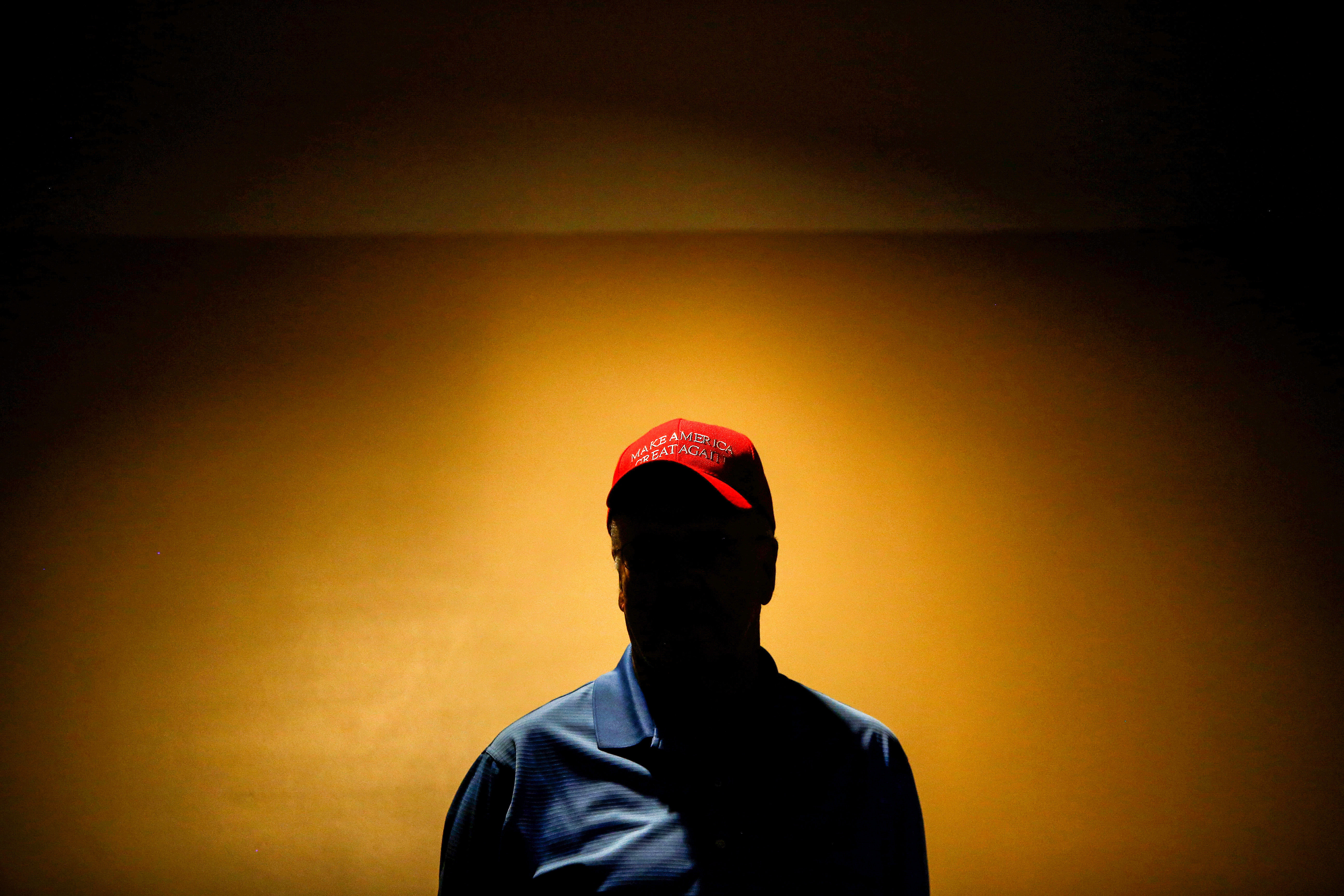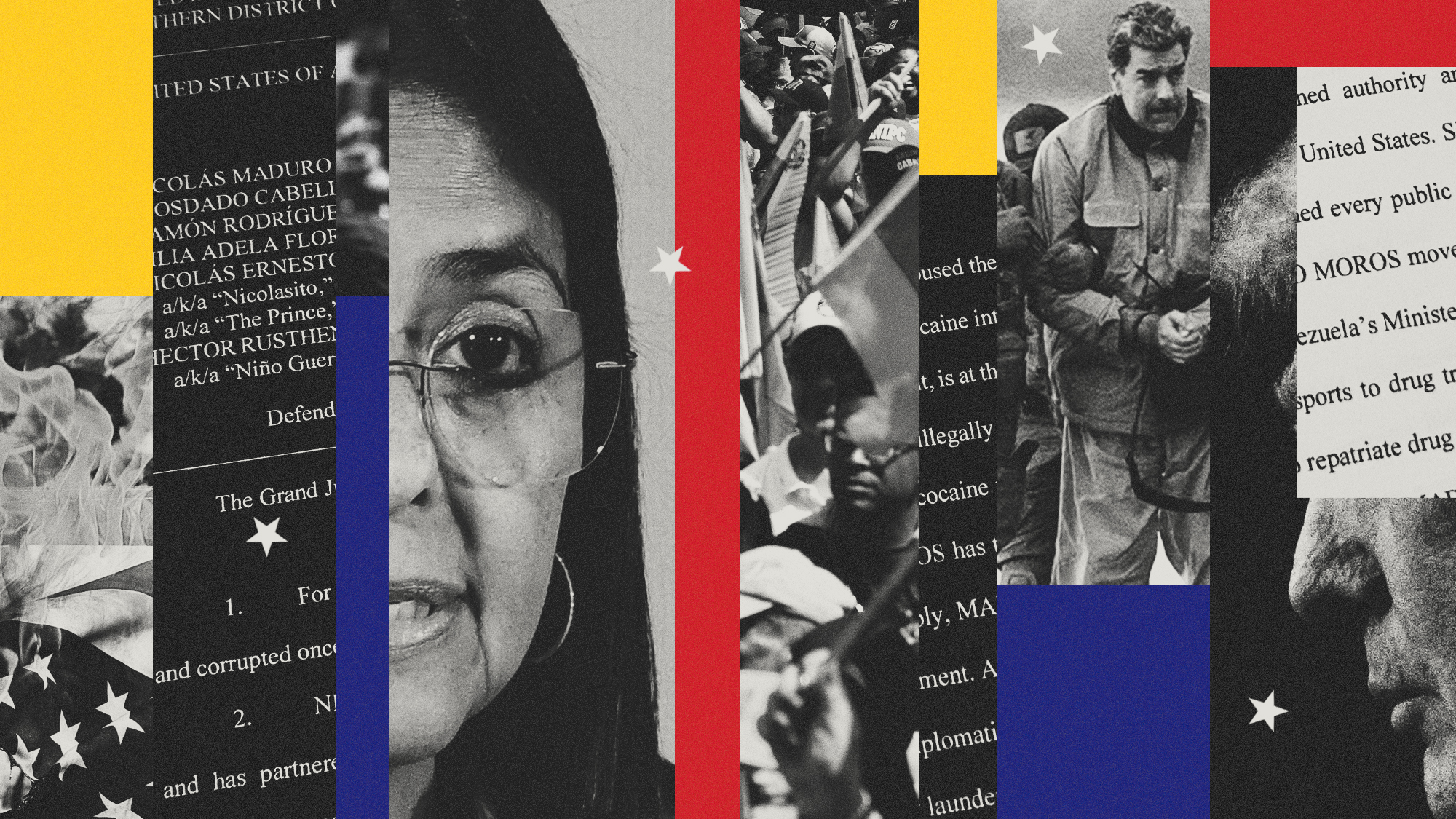Why poor whites flock to Donald Trump
It's not just racism


Ever since Donald Trump cruised to victory in the Republican primary, political elites and pundits have been struggling to explain his success. Many liberals (once they left off unequivocally predicting that he could not possibly win) have settled on a one-factor explanation: bigotry. Trumpists are disgruntled white racists, end of story.
It is of course beyond question that a big part — probably the large majority — of Trump's success is built on racism, anti-immigrant paranoia, and xenophobia. But in their haste to rule out economic factors, liberals are whistling past some important data, and failing to explain other aspects of Trump — namely, his violence and authoritarianism.
Matt Yglesias handily stakes out the far pole of the liberal view, explicitly foreclosing any economic angle whatsoever to Trump's rise:
The Week
Escape your echo chamber. Get the facts behind the news, plus analysis from multiple perspectives.

Sign up for The Week's Free Newsletters
From our morning news briefing to a weekly Good News Newsletter, get the best of The Week delivered directly to your inbox.
From our morning news briefing to a weekly Good News Newsletter, get the best of The Week delivered directly to your inbox.
[I]n this case, adding an economic anxiety factor to your account doesn't actually help to explain anything. Trump's supporters, for example, are considerably whiter and considerably older than the American population at large. If the economic problems of the past decade had been unusually hard on the white and the old, then an economics-focused explanation could be valuable. In reality, things have been rougher on nonwhites and rougher on younger cohorts. [Vox]
The first problem with this is that there actually is a fairly large class discrepancy to explain. Trump is winning people without a college degree (disproportionately low-class) by 10 percentage points, according to a recent Bloomberg poll — whereas in 2012, President Obama won that same group by 4 points.
Now, it is true that the 14 point swing is driven entirely by white people. Trump has improved on Mitt Romney's margins among this group from 55-37 to 58-30, as of a couple weeks ago. However the 2012 election makes a reasonable experimental control for the liberal hypothesis. It rather stretches credulity to assert that Clinton is getting slaughtered among whites without a college degree entirely because of racism when only four years ago the actual black candidate did 10 points better among the same group. (Incidentally, in 2012 non-college educated whites made up over one-third of Obama's votes.)
Secondly, Yglesias hangs a lot of explanatory weight on the fact that Trump has zero crossover appeal to non-whites. But that is completely consistent with Trump leveraging whites' economic distress by scapegoating ethnic minorities and immigrants. Of course the blamed minority groups will be repulsed by such an appeal — but that doesn't rule out some sort of economic appeal to whites only.
Finally, even if we posit for the sake of argument that racism explains Trump, it does not explain the particular character of his racism, nor his violent authoritarian tendencies. Take wealthy New York liberals, who express their racism by furiously organizing behind the scenes to keep blacks out of their kids' schools, while publicly denying any racist views. By contrast, Trump is not just racist, he is baldly racist in a way not seen since 1968 at least — and he praises dictators, incites violence among his supporters, suggests Clinton is going to steal the election, and on and on.
A free daily email with the biggest news stories of the day – and the best features from TheWeek.com
Back in 2012, Matthew Stoller argued at length that the basic American social contract had collapsed. During the New Deal, citizens' social consent was obtained through widespread unionization, low unemployment, and rising wages. During the Reagan era, neoliberals from both parties killed unions and forced wages into stagnation, but consent was still obtained by increasing asset prices (homes, for most people) and easy access to credit.
Now that contract is dead too. Wages fell during the Great Recession, and only just recently began to slowly increase. The Obama administration did basically nothing to arrest the tidal wave of foreclosures that obliterated some $8 trillion in wealth after the recession — indeed, it stood aside as banks committed systematic perjury to hide lost mortgage documentation. Since then, home prices have recovered to some extent, but more and more people are locked out of that wealth creation — the rate of homeownership has plummeted to a level not seen since 1965, and shows no sign of stopping.
Stoller predicted this would eventually lead to a more coercive, authoritarian politics, as irate citizens abandon elite notions of democracy and social respectability, demanding some kind of disruptive change, and elites scramble to keep them pinned down through economic and physical coercion. That prediction, rooted in on-the-ground economic realities, has been borne out by Trump.
Once again, bigotry is absolutely central to the Trump phenomenon — indeed, in many ways it's reminiscent of the Jim Crow South, where a white elite kept a large minority population in submission with violent terrorism and bought off poor whites with economic scraps and racist propaganda. But liberals are writing themselves a rather dangerous free pass if they pass off the rise of Trump as nothing but pure racism. The truth is that American society has largely ceased to function for a sizable fraction of the population, with downscale whites suffering the worst relative declines — including a huge increase in mortality rates among some sub-populations. This is the result of decades of neoliberal policies affirmed and implemented by both parties.
Trump will in all likelihood be crushed in November. But if liberals cannot articulate a convincing new politics that can provide a modicum of economic security to most people, they'll eventually lose to someone following the trail he blazed.
Ryan Cooper is a national correspondent at TheWeek.com. His work has appeared in the Washington Monthly, The New Republic, and the Washington Post.
-
 ‘Jumping genes': How polar bears are rewiring their DNA to survive the warming Arctic
‘Jumping genes': How polar bears are rewiring their DNA to survive the warming ArcticUnder the radar The species is adapting to warmer temperatures
-
 January’s books feature a revisioned classic, a homeschooler's memoir and a provocative thriller dramedy
January’s books feature a revisioned classic, a homeschooler's memoir and a provocative thriller dramedyThe Week Recommends This month’s new releases include ‘Call Me Ishmaelle’ by Xiaolu Guo, ‘Homeschooled: A Memoir’ by Stefan Merrill Block, ‘Anatomy of an Alibi’ by Ashley Elston and ‘Half His Age’ by Jennette McCurdy
-
 Venezuela’s Trump-shaped power vacuum
Venezuela’s Trump-shaped power vacuumIN THE SPOTLIGHT The American abduction of Venezuelan President Nicolás Maduro has thrust South America’s biggest oil-producing state into uncharted geopolitical waters
-
 Bari Weiss’ ‘60 Minutes’ scandal is about more than one report
Bari Weiss’ ‘60 Minutes’ scandal is about more than one reportIN THE SPOTLIGHT By blocking an approved segment on a controversial prison holding US deportees in El Salvador, the editor-in-chief of CBS News has become the main story
-
 Has Zohran Mamdani shown the Democrats how to win again?
Has Zohran Mamdani shown the Democrats how to win again?Today’s Big Question New York City mayoral election touted as victory for left-wing populists but moderate centrist wins elsewhere present more complex path for Democratic Party
-
 Millions turn out for anti-Trump ‘No Kings’ rallies
Millions turn out for anti-Trump ‘No Kings’ ralliesSpeed Read An estimated 7 million people participated, 2 million more than at the first ‘No Kings’ protest in June
-
 Ghislaine Maxwell: angling for a Trump pardon
Ghislaine Maxwell: angling for a Trump pardonTalking Point Convicted sex trafficker's testimony could shed new light on president's links to Jeffrey Epstein
-
 The last words and final moments of 40 presidents
The last words and final moments of 40 presidentsThe Explainer Some are eloquent quotes worthy of the holders of the highest office in the nation, and others... aren't
-
 The JFK files: the truth at last?
The JFK files: the truth at last?In The Spotlight More than 64,000 previously classified documents relating the 1963 assassination of John F. Kennedy have been released by the Trump administration
-
 'Seriously, not literally': how should the world take Donald Trump?
'Seriously, not literally': how should the world take Donald Trump?Today's big question White House rhetoric and reality look likely to become increasingly blurred
-
 Will Trump's 'madman' strategy pay off?
Will Trump's 'madman' strategy pay off?Today's Big Question Incoming US president likes to seem unpredictable but, this time round, world leaders could be wise to his playbook
